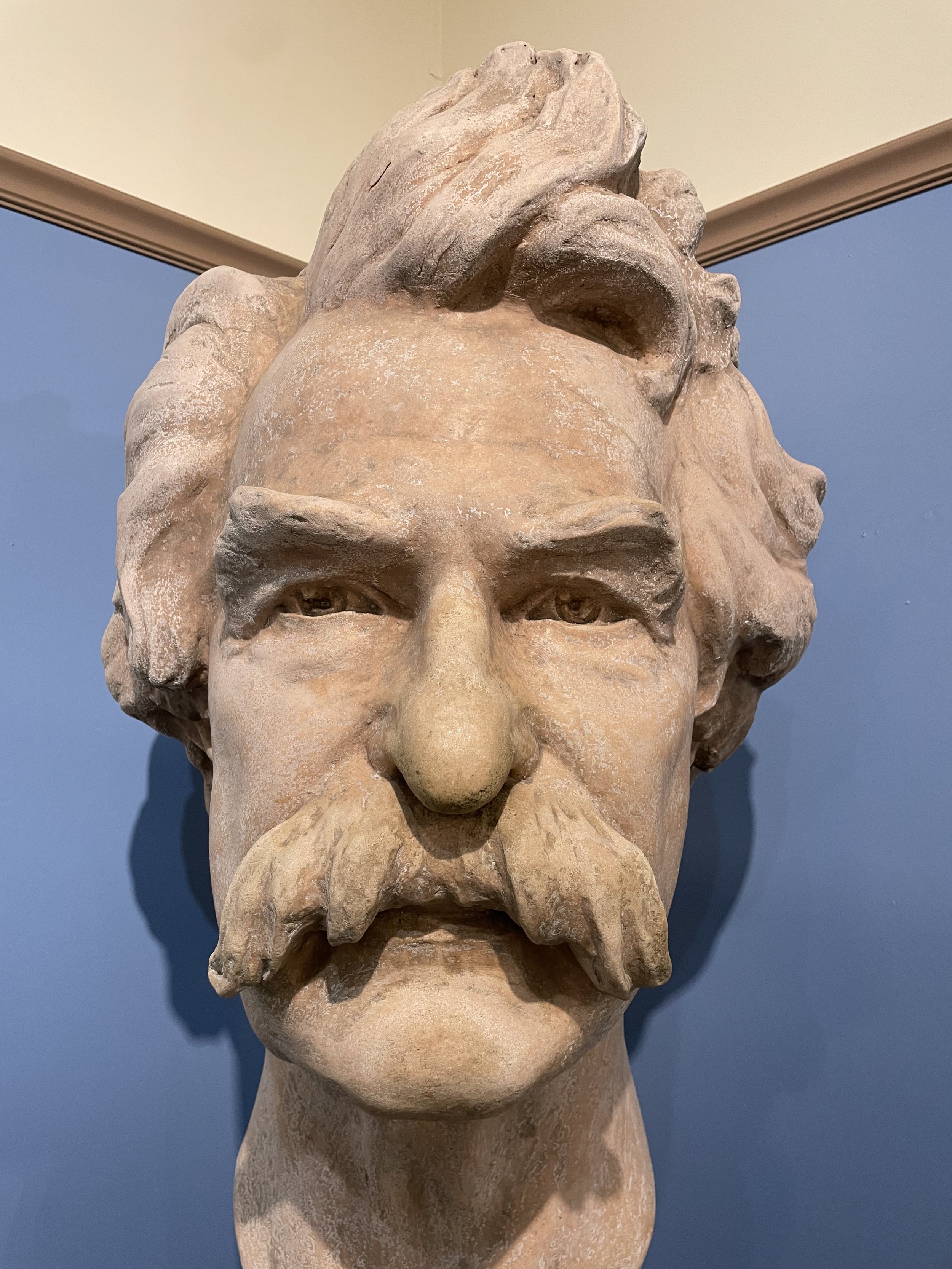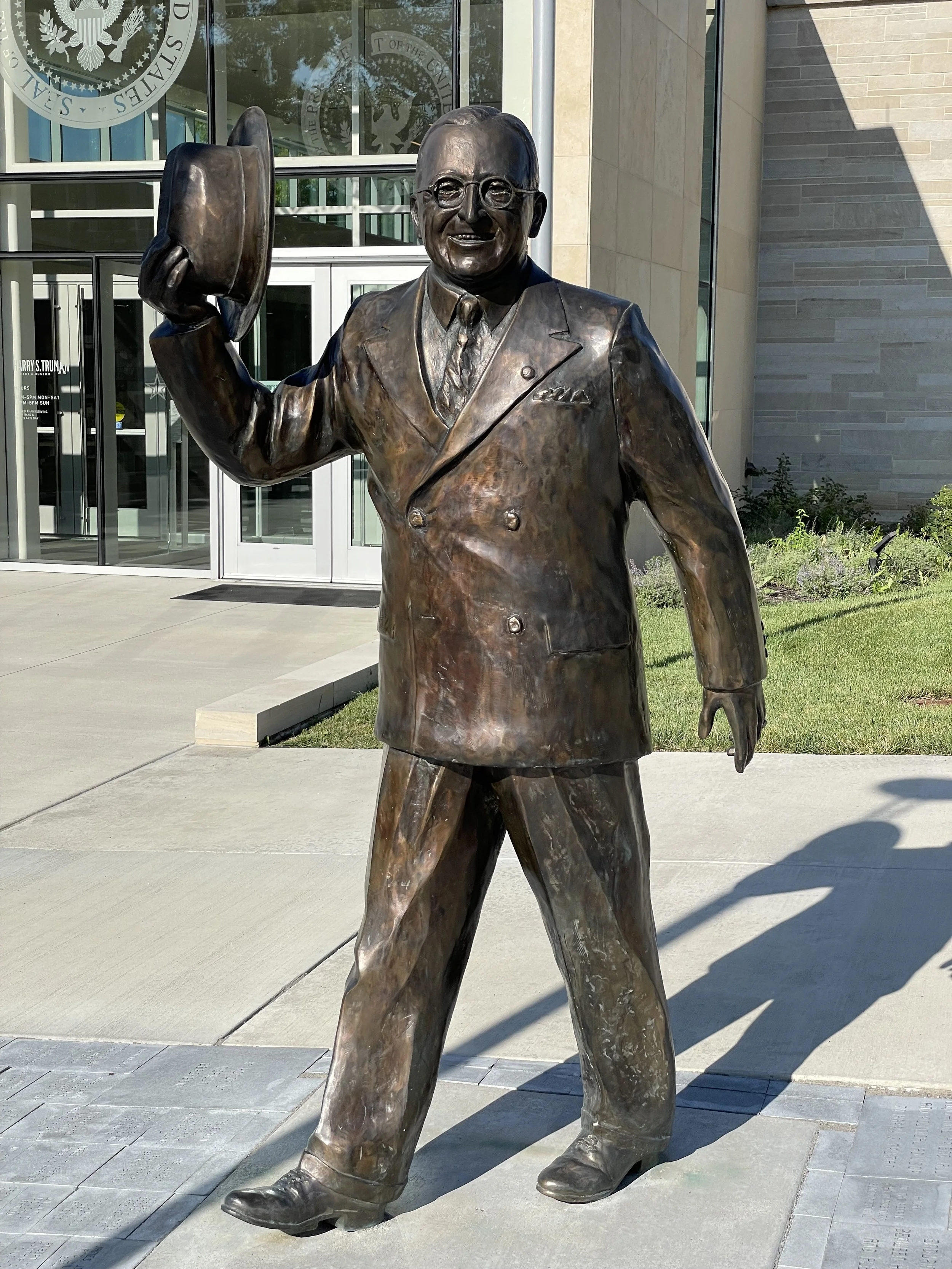We’re on our last legs.
After visiting our children once again in Denver (and doing several weeks worth laundry in my daughter’s washing machine, no coins required), we turned toward home returning to the modern interstate highway that has replaced Route 66 as the ‘mother road’ — I-70. The already full van was now stuffed to the vents with the modest gifts we’d purchased and souvenirs like coffee mugs and pint glasses whose use we hoped would bring back nice memories in the months and years ahead. With various parts of the van rattling, it having been shaken like James Bond’s martini on potholes and gravel roads for months, we were quite literally, clattering east.
We’ve made the trip to Colorado and back home several times since our kids moved out there but each time we seemed to be in a hurry — covering the near 2,500 km drive in three days and blowing by the attractions touted on the highway signs. This time with neither of us having jobs or other obligations demanding our return; we decided to take our time.
Aforementioned attractions included:
The Dwight D. Eisenhower Presidential Library and boyhood home in Abilene, Kansas.
The National Historic Site of Nicodemus, founded by emancipated slaves in 1877 and still a functioning (albeit tiny) community today.
The Harry S. Truman Presidential Library and Museum.
Hannibal, Missouri and Mark Twain’s childhood home on the banks of the Mississippi.
Mackinaw, Illinois where we saw fields of corn as far as the eye could see and an old friend.
We enjoyed all the sites and visits but everything was imbued with a strange feeling. Looming over everything was ambivalence that we would soon be home.
Three months is a long time to be away. It is long enough that the rhythms of life on the road have long felt completely normal and natural. Long days of driving, buying just enough fresh food for a day or two at a time, living outdoors with whatever weather conditions are presented on a given day, always worrying about where our next bag of ice is coming from, become simply the way one lives. The thought of returning to four walls and the confines of living within just a few square kilometers seems terrifyingly bland.
The name of my website and blog, Clattering East, comes, of course, from the title of my poetry chapbook published in 2013. The chapbook title in turn comes from the last line of one of the included poems, Yizkor.
Yizkor is an homage to my maternal grandfather, Alfred, who left Germany in 1927 as the Nazis were moving towards power. His own parents didn’t escape until 1939 departing on literally ‘the last boat.’ Sadly, many family members including my grandfather’s two uncles did not get out in time and were murdered in concentrations camps. The poem is an attempt to frame Alfred’s life in the context of his ‘survivor’s guilt’ as I imagine his reflections on the very different train journey of his family’s members. Although my grandfather’s journey took him ‘clattering west’ toward a ship and freedom in American, his uncles and cousins went ‘clattering east’ toward the camps and death.
However, for most of its time in the human imagination, the direction east has been associated with the rising sun and with adventure, spiritually, and the gods. Both Jews and Muslims pray toward the east (at least in the Western Hemisphere) facing toward Jerusalem and Mecca respectively.
By calling the book and the blog Clattering East I was trying to capture that dual sense of a life’s journey, simultaneously moving toward both a higher plane of spiritually and at the same time the doom of ones own death, which none of us escape no matter which train one rides.
I am cognizant of both these realities as we finish this get close to home. The odometer says we have traveled 12,736 miles but a journey is so much more than the distance traveled just as a life is more than the number of years lived. Homecoming is always both and end and a beginning.
On very final stretch, we stopped at the New Virndaban Hare Krishna Temple near Wheeling, West Virginia. Established and lovingly build by spiritual seekers in the 1970, the temple today houses a small community and attracts both believers and the curious from all over the world. Our timing was in the words of one resident “auspicious” as we happened to arrive just as a free vegetarian lunch was being served. Well, not exactly free since we made a donation for the food and then paid an additional $12 per person to tour the incredible, hand crafted Palace of Gold originally built as a residence for the founder of the Krishna Consciousness Movement. He never resided there, having died before it was completed.
The temple and palace campus deep in the hills of West Virginia was peaceful, quiet, and filled with lush natural beauty. It offered a glimpse of a way of living with nature and ones fellow humans in respect and harmony. Whether the reality of life there matches the vision or falls short as most human endeavors seem to, I was not there long enough to say. But the vision was moving and inspiring nonetheless.
Home now for five days, it feels in many ways as if we were never away. The tasks of everyday life return with vengeance as if resentful of our neglect. The Honda needs new spark plugs. The bathroom sink is leaking and the toilet is running. The van needs a solid cleaning and windshield repair. I still haven’t gotten all the camping equipment put away. Quarterly taxes are due. The yard…. I don’t even want to think about it.
But journeys change one. Living outside, sleeping in a minivan, cooking our simple meals on a camp stove for three months and experiencing the vast open spaces of this continent, must change the way one regards luxury and necessity. The people we met, the wildlife we saw, and the in-our-face miracles of daily life on earth can’t help but cause one to reevaluate destinations and priorities.
What’s next, I am not sure but I know it is vital not to get too comfortable. To paraphrase Twain’s eponymous adventurer in his final words in The Adventures of Huckleberry Finn, “I reckon I got to light out for the territory ahead before I get too sivilized, I been there before. I can't stand it.”







